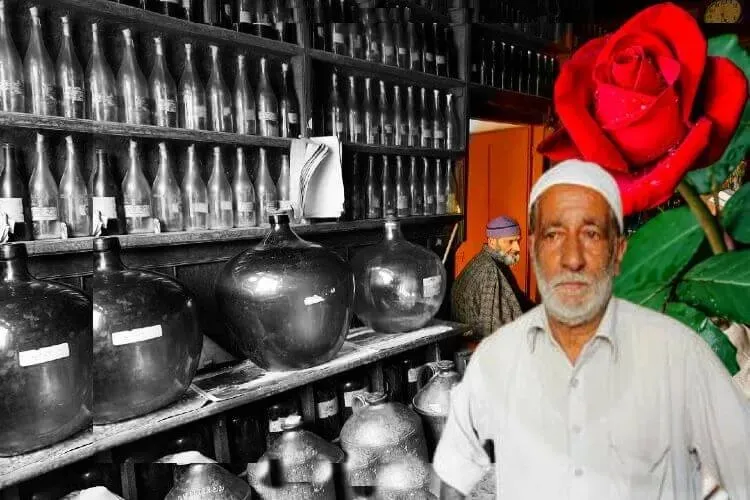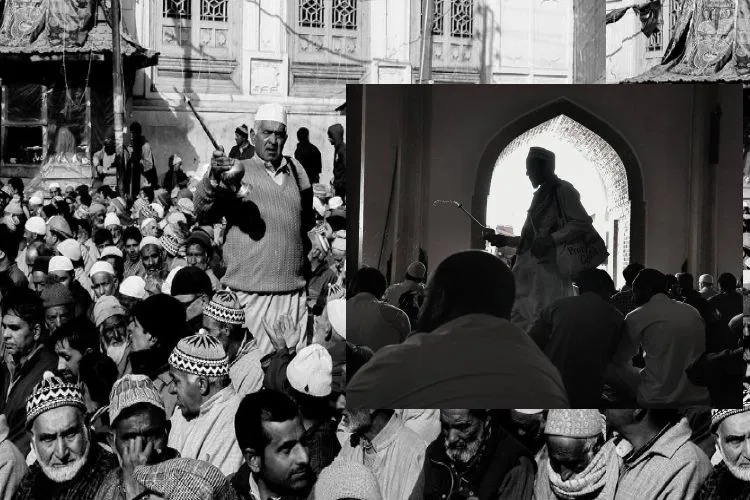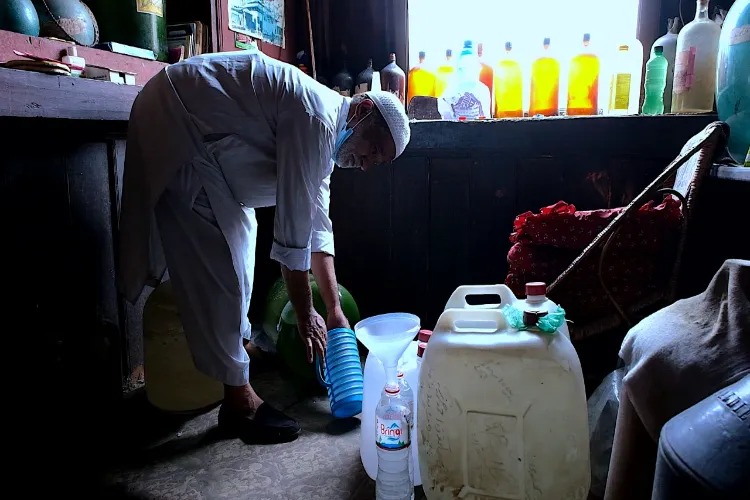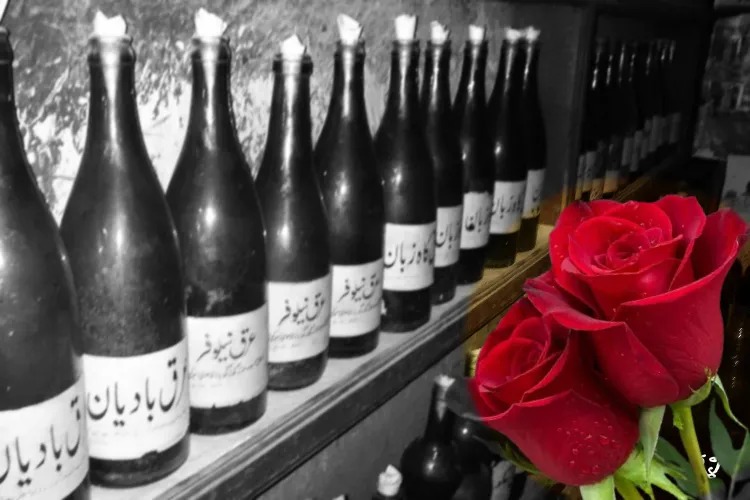
Rizwan Shafi Wani / Srinagar
It was about 700 years ago when Mir Syed Ali Hamdani came to Kashmir from the Iranian city of Hamdan. He brought with him many carpet weavers, Islamic preachers, perfumers, and Sufis. They settled on the banks of river Jhelum and introduced Islam and disseminated their skills and knowledge to the locals.
Kashmir’s major industries of carpet weaving, papier-mache, wood carving, etc that are today the mainstay of the local economy have their origins in the caravan of Shah-e-Hamadan, as the preacher from Iran is called in Kashmir, that came from the Silk Route to the Valley.
Abdul Aziz Kozgar upholds one such legacy. He is continuing with the manufacturing of rose water at his small shop-cum factory in Srinagar downtown to carry on the family business of 400 years. Rosewater making was also one of the skills brought by the Iranian preachers to Kashmir.
Not coincidently, Abdul Aziz’s 90-year-old shop is located a short distance from the Dargah of Shah-e-Hamdan.

Rosewater being sprinkled on the devotees in a Kashmir dargah
Abdul Aziz told Awaz-the Voice that this is a new shop and his family shop, set up in the 19th century, was located in his older house. It had a special chamber for making rose water.
Since the house was demolished and a new one built over it, the family shifted the operations to the new shop.
“Our ancestors migrated to Kashmir from Iran 500 years ago and settled here. They started the business of making rose water and have been engaged in it since then,” says Kozgar.
He is the only person in Kashmir who knows the art of making rose water manually. His shop is filled with vintage vessels - some empty, some filled with rose water. Abdul Aziz said, “I have 200-year-old utensils in my shop; these were brought from Britain and France by my ancestors. These utensils keep the water cool and also retain the aroma.”

Abdul Aziz making the rose water in his shop
He says that most of the elders buy his handmade-rose water. “People take my rose water for use in temples and mosques. Some even buy it as a gift or for cooking. If a young man comes I realize that he has become a regular customer and understands the value of my product. The fragrance compels them to buy this rose water.”
Abdul Aziz says that once upon a time there was a Sufi in every locality of Srinagar. “They cured diseases with different types of extracts due to which shops like his were very popular. His shop was crowded with caregivers and the sick. Over time the Sufis died, their children did not carry forwards their traditions and these natural remedies are near to extinction.”
He admits he could shift to a new business since the demand for rose water or Gulab ark has been on the decline. “I chose to carry on the legacy of my ancestors. As long as I live, I will keep this legacy alive,” he declares.

Abdul Aziz's shop with vintage utensils
He said, 'When I was young, I learned the process of making rose extract from my father. I voluntarily entered this profession. My father wanted me to keep this legacy alive in the memory of my ancestors. I have kept the promise made to him. I earn Rupees 200-300 by selling rose water per day; it’s not enough to meet the expenses of the family. However, thinking that I am keeping my heritage alive gives me peace of mind.”
Also Read: Dr Ali Jan, Kashmir's 'magic healer' and his family of spiritual leaders
Abdul Aziz says though he wishes his children to carry on the family business yet he is aware that the low return from the business makes it not a viable business. “I will not force my children to run the shop,” he says.
